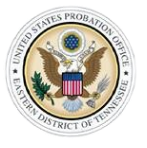There are a number of programs, resources, guidance documents, and information provided by the Federal Bureau of Prisons to help you succeed in being safe and productive while in custody and to prepare for release before the time comes. Please reference the documents, information, and links below.
OPERATIONS
U.S. Bureau of Prisons (general information)
Federal Prison/Facility Locator (by facility name, state, region, type). The USBOP operates institutions at five different security levels to include minimum, low, medium, high, or administrative.
Facility designations are done following the most current BOP Designation Directives and Procedures. Also, here is a list of personal property items allowed and not allowed with the BOP, as well as an excellent ABCs of the BOP document (courtesy of the Southern District of Illinois) that answers a lot of questions about what to expect and how things work.
Federal Inmate Locator (by facility)
Handling Juvenile Offenders within the USBOP
USBOP Facility Address Database for inmate mail, physical address, shipping, and staff mail (search by location/facility type)
USBOP Communication System (vitiation, mail, email, and telephone communication)
RESTORATIVE INTERVENTIONS
(such as treatment, employment training, and readiness, education, religious programs, etc.)
The Bureau of Prisons provides services and programs to address inmate needs, structure use of leisure, and facilitate the successful reintegration of inmates into society. Each Bureau facility offers a set of programs and services that vary based on the characteristics and needs of its specific inmate population.
Upon arrival at a new institution, an inmate is interviewed and screened by staff from the case management, medical, and mental health units. Later, an inmate is assigned to the Admission and Orientation (A&O) Program, where he or she receives a formal orientation to the programs, services, policies, and procedures of that facility. This program provides an introduction to all aspects of the institution.
Research has conclusively demonstrated that participation in a variety of programs that teach marketable skills helps to reduce recidivism. Additionally, institution misconduct can be significantly reduced through programs that emphasize personal responsibility, respect, and tolerance of others. Accordingly, the BOP offers a wide variety of program opportunities for inmates that teach pro-social values and life skills. These programs include literacy and occupational training, the Life Connections Program, parenting programs, mock job fairs, etc.
For a more in-depth discussion of each program (e.g., inmate training, women's issues, education, medical care, computations, designations, religious programs, etc.), go to the USBOP link on Inmate Programs.
Federal Bureau of Prisons - Employment Program Handbook (2011)
U.S.BOP Substance Abuse Programs (includes education, residential and non-residential programs, transitional treatment, FAQs, etc.)
USBOP Occupation Programs Listing,
USBOP Ex-Offender Employment Resources
REENTRY INFORMATION
Opportunities and Expectations - Reentry Programming (USBOP Director Charles E. Samuels, Jr. - Jan. 2012 document)
Release Preparation Program, Employment Portfolio, and External Job Application and Bonding Letter within the BOP
FCI McKean Reentry Resource Guide
Residential Reentry Centers (RRC) - commonly known as halfway houses (operations, locations, FAQs, etc.). Description from the USBOP of the overall program design, processes, and expectations are listed here.
